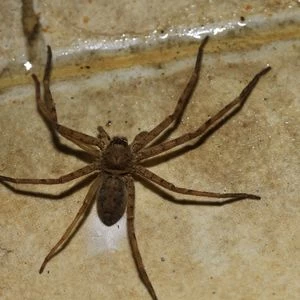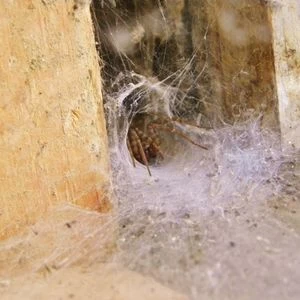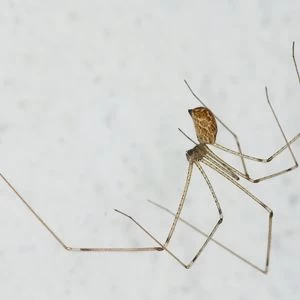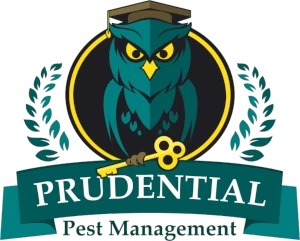Spider Control Services
 More Than Just a Spray
More Than Just a Spray
Spiders are one of the most feared pests in the home that people want to exterminate. There are more phobias about spiders than in any other past, and understandably so. If you get bitten by the wrong spider – a black widow or a brown recluse – and you have a bad reaction to the venom, you can end up in the hospital. And yes, there have even been some deaths associated with spiders(though fewer than you may think – only six per decade in the U.S.). Spider bites are rare. Most people are wont to get bit in their lifetime by a spider, but the fear is still there, so we offer spider control services for commercial and residential locations. Save more with our residential packages and commercial packages.
Things to Know About Spider Control
 Don’t expect perfection in spider control. Chemicals are not very effective against spiders, nor do spiders readily pick up pesticides. So just spraying is not a great defense against spiders. With their long legs, spiders keep their bellies well above the ground, so sprayed insecticide residue on a surface will only touch their feet. But they don’t have a circulatory system that will carry the insecticide from the bottoms of their feet to the organs in their bodies that would cause them to die.
Don’t expect perfection in spider control. Chemicals are not very effective against spiders, nor do spiders readily pick up pesticides. So just spraying is not a great defense against spiders. With their long legs, spiders keep their bellies well above the ground, so sprayed insecticide residue on a surface will only touch their feet. But they don’t have a circulatory system that will carry the insecticide from the bottoms of their feet to the organs in their bodies that would cause them to die.
So, you have to make contact with the insect through a direct spray, a newspaper, a shoe, or whatever your weapon of choice is. Spiders are arachnids, not insects. Actual insects (such as ants, roaches, and wasps) use their mouths to groom themselves, so they end up eating insecticide that gets on their feet, legs, and bodies. But spiders don’t routinely use their mouth parts to clean themselves. They will wash their portion if there is a large particle stuck to it, but it’s not a habit that will guarantee pesticide will kill them. In addition, most spiders spend their entire lives sitting in webs (a non-treated surface). So, spider control needs to be a “contact kill.”
Our Spider Control Services
There are some exceptions to a contact kill; if you use a long-term pesticide spray on the surface of a crack that a spider goes in and out of (such as between a baseboard and the carpet or a piece of wood trim around a window), the spider’s body will likely contact the spray, and the pesticide would be effective.
The best way to control running and jumping spiders at home is to control their food sources around the house. Spiders eat other insects, so reducing the other insects around your home will reduce their food sources, and spiders will be less interested in hanging around. Most spiders like to hang out near light sources, which helps them capture flying insects attracted to light. A web-spinning spider worth his salt will let his meals come to him; hunting spiders are more athletic — they do run down their prey. A subcategory of hunting spiders is jumping spiders. If you’ve seen one of those, you recognize it. They have more of a pouncing behavior to capture their prey. The spiders with short, stubby legs are almost all the jumping variety. The spiders with long – but not delicate – legs are the running spiders. These include wolf spiders and brown recluses. You won’t find those spiders spinning a web.
 So – to get rid of spiders, we get rid of your other bugs. Crack and crevice treatment with the appropriate insecticides provides some spider control. Still, we also use glue boards or sticky traps, which Prudential Pest Management will provide with our spider treatments. These are non-pesticide capture mechanisms. Some can be folded into a box so unintended items won’t get stuck to them. There are no attractants in most of these glue traps. Some companies try to add a scent, but seeing a bug stuck in the glue trap is the most attractive thing for a spider. We often see glue traps with a bug in the glue — and a spider stuck right on top of it.
So – to get rid of spiders, we get rid of your other bugs. Crack and crevice treatment with the appropriate insecticides provides some spider control. Still, we also use glue boards or sticky traps, which Prudential Pest Management will provide with our spider treatments. These are non-pesticide capture mechanisms. Some can be folded into a box so unintended items won’t get stuck to them. There are no attractants in most of these glue traps. Some companies try to add a scent, but seeing a bug stuck in the glue trap is the most attractive thing for a spider. We often see glue traps with a bug in the glue — and a spider stuck right on top of it.
The sticky trap, or glue trap, captures spiders – if they walk through the web, they die. But we can’t cover much surface area with a surprise, so we have to place them where the spiders are most likely to come to them. Your service technician is highly trained in locating the areas spiders love.
Glue traps can also point us toward the source of the infestation, enabling us to discover how the spiders get into the house. If you have six spiders trapped on the left side of a glue trap, look toward the left, along the wall, and check for an opening like gaps around or under a door or non-aligned wall socket. If it’s a crack that we can caulk – we will do so.
Call (810)410-8563 to set up a preventative treatment now
Prudential Pest Management services the following areas in Michigan:
Genesee County, Tuscola County, Lapeer County, Oakland County, Livingston County, Shiawassee County, Saginaw County, Burton, Clio, Davison, Fenton, Flint, Flushing, Grand Blanc, Linden, Montrose, Mount Morris, Swartz Creek, Gaines, Goodrich, Lennon, Montrose, Otisville, Otter Lake, Clayton Township, Fenton Township, Flint Township, Flushing Township, Genesee Township, Grand Blanc Township, Montrose Township, Mount Morris Township, Mundy Township, Vienna Township, Argentine Township, Atlas Township, Davison Township, Gaines Township, Richfield Township, Thetford Township, and Forest Township. We service all communities in Genesse and its surrounding counties.
